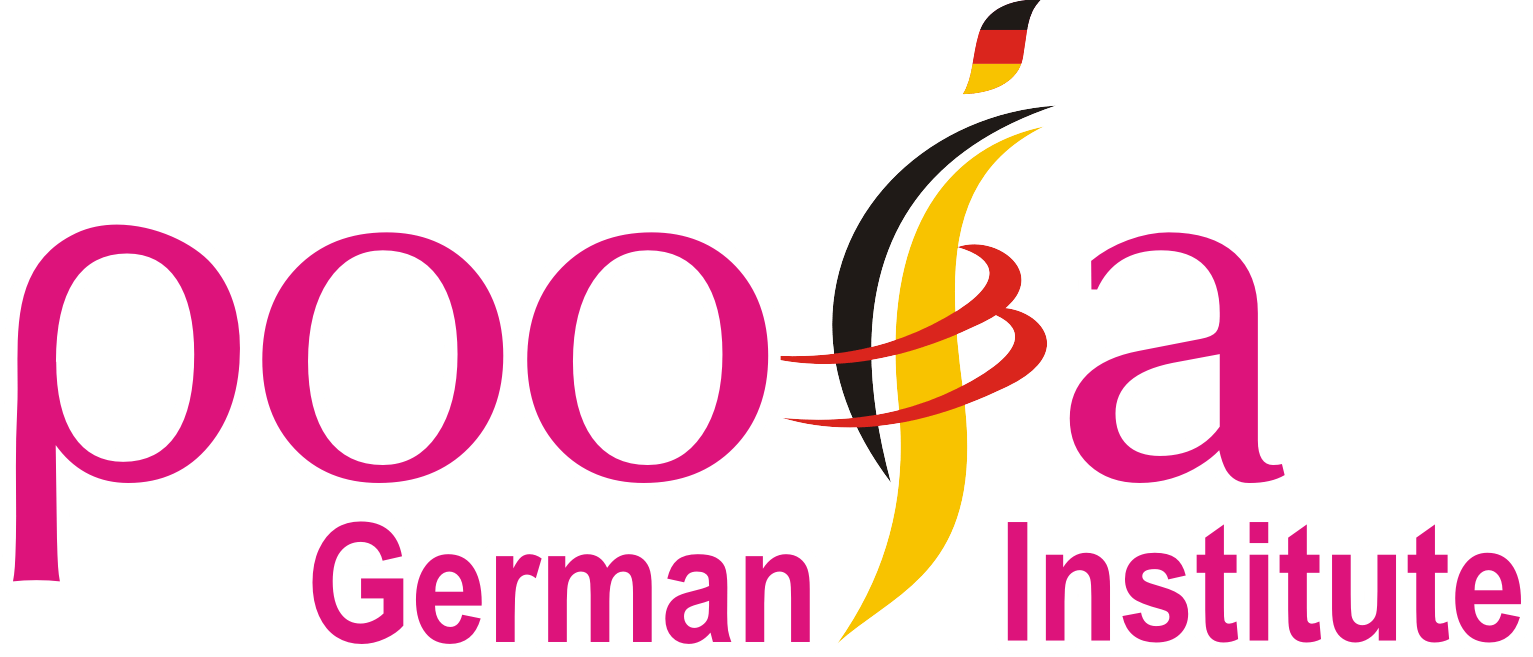Two-thirds of international students still decide to work part-time to pay for their living expenses, even though German universities have zero or extremely cheap tuition fees and the cost of living in Germany is very affordable when compared to other nations.
As an international student, managing your finances is a very significant obstacle you must overcome. The best course of action is to start organizing your funds and figuring out how you’ll pay for your living expenses in Germany well in advance
Some modes of financing
- Parental income
- Personal savings
- Working part-time
- Scholarships
- Student loans
Personal savings
Even while your own savings might not be enough to pay the entire cost of your studies in Germany, with a little work, you can amass the bare minimum amount needed to show evidence of your financial stability and obtain your German student visa and residence permit.
Since you cannot earn this much overnight, it is strongly advised that you begin saving sooner. For the majority of international students, studying in Germany has long been an option for obtaining a university degree. Those who were aware of what studying in Germany would entail for them away from home began saving money as soon as they made the decision to do so.
Having said that, it’s a good idea to start saving money no matter where you are in the process, whether you’ve simply considered attending a German institution in the future or you’re presently requesting a student visa.
Before you submit an application for a student visa, you must deposit your savings in a blocked German account.


Parental Income
You can use it as evidence of financial resources to obtain your student visa if your parents make enough money to pay for your studies in Germany. In order to establish that the funds belong to your parents and that you will be able to pay for your studies and living expenses in Germany, the German embassy will want you to provide a bank statement.
Additionally, if your parents’ income is better, they will be able to pay for your expenses throughout the entire course. This is a fantastic chance for you to fully commit to your studies without worrying about money.
Parents frequently set up personal savings accounts for their kids in certain families so they may pay for their education. Many overseas students utilize this money as proof of financial resources while applying to study abroad in Germany.
In the end, even if your savings fall short of the minimum amount needed to apply for a student visa, they will help you pay for additional expenses associated with studying in Germany.
Part time jobs
In order to pay for their living expenses, the majority of international students in Germany work part-time. When it comes to work chances for students, Germany is a sea of possibilities, and the majority of them don’t even initially call for a higher level of professional expertise in a given subject. Over 60% of international students in Germany work part-time,which is not surprising.
International students in Germany are permitted to work up to 120 days per year under current legal guidelines.
If you intend to work past that time, you must obtain special clearance. The local employment agency (Agentur für Arbeit) and the foreigners’ registration office (Ausländerbehörde) are two institutions that provide these permits.
However, don’t expect to live solely off the income from your part-time work. The majority of the time, they fall short of covering all costs, necessitating the use of additional funds. But it still frees up a lot of money from your budget. After all, the majority of German students do just that.
We advise getting in touch with the student service at the university you are attending or the Federal Employment Agency in your neighborhood if you don’t know how to hunt for a job. They’ll probably come across something that fits your criteria.

Types of jobs available for International students
You can look for a variety of part-time employment in Germany. However, we advise you to look for a job in your subject of study. You’ll get financial assistance with living expenses as well as academic credit.
You could, for instance, work as a staff member at the university lab if you’re a chemical student.
In Germany, universities provide students with a wide variety of part-time occupations. However, there are certainly a lot of other part-time jobs outside of your university that you can apply for if you are unable to locate one on your campus.
Here are some suggestions for jobs you could have while studying in Germany if none immediately spring to mind:
- Tutor
- Academic assistant
- Administrative Staff at Student Services
- A staff member at the university’s history museum
- Newspaper distributor
- Waiter
- Bartender
- Babysitter
Education Loans
Obtaining an education loan for Germany is as straightforward as obtaining one for any other study abroad country. Simple changes make the procedure same. German universities welcome new students twice a year, in January and September. The next significant challenge for students is to get the necessary funding for their educational expenditures once they have been admitted to the University of their Choice. Students in the nation pay no tuition costs for undergraduate courses and only a little amount for graduate courses, making studying there extremely affordable.
Many Banking and Non-Banking Institutions in India offer education loans to deserving students to pursue their higher education abroad at a cheap rate of interest, which would please students and families wishing to apply for student loans. Since its inception, applying for a student loan has advanced, making it simple for both students and their parents to do so. However, there are several details that must be remembered before to applying for the loan. A collateral may occasionally be needed as security to obtain a loan, although this is strictly case-by-case. There would typically be a co-applicant in most circumstances, who may be your parent, sibling, in-laws, or spouse.
Types of loans available
For students interested in studying abroad, there are two types of education loans on the market. There are two types of student loans, Secured education loans and Unsecured education loans, which are both briefly outlined here.
Secured Education loan
Secured education loans require security in the form of collateral. In these situations, borrowers must include collateral with their loan applications, which the bank will review and may use to recoup the loan, should the borrower later fail to make payments. Collateral can be an asset, such as real estate, mutual funds, certificates of deposit, or other types of investments.
Unsecured Education loan
Unsecured student loans are just that—loans with no security or collateral. When requesting a loan, the student is not required to provide any collateral. Most banks will not approve unsecured loans for amounts greater than INR 7.5 L because no security is retained. One can contact private banks and NBFCs for sums greater than that.
Other important factors that differ between institutions include the length of time it takes to process a loan, the costs that are covered by the loan, the length of the payback period, etc. Details regarding it are provided below.


Loan processing time: The fastest loan processing is done by NBFCs, who often authorise loans in 4-5 days. Because collateral is involved, secured loans take much longer to sanction and process than unsecured loans. A secured loan is only approved after careful consideration and verification of the pledged collateral. Unsecured loans, on the other hand, can be approved by a private bank in 7–10 working days.
Expenses covered: 100% of the costs associated with a student’s education are covered by NBFCs and some public sector banks. Only 90% of the student’s education-related costs are covered by some state banks and the majority of private banks. To obtain the appropriate compensation, a student must map out potential costs and present the list to lenders.
Co-applicant’s income details: The co-income applicant’s information is not necessary for secured loans. However, it must be provided upon request in order to approve unsecured student loans. The prerequisite changes depending on the lender.
Repayment details: Institutions and lenders have different procedures and time frames for repayment. The majority of public banks provide a payback duration of between five and ten years, with the student needing to start making EMI payments after six months of course completion. Private banks provide a significantly shorter repayment period, with the need that the student start making EMIs one year after the course is finished. Similar to this, NBFCs provide an additional brief repayment time and demand that a student start making EMI payments right away after having their school loan approved.
Reason for loan rejection: Loan rejection can occur for a variety of reasons, some of which include a low CIBIL score, missing documents, a low co-applicant income, etc. However, with the right guidance and assistance, you can raise your chances of getting a loan.
Eligibility criteria to apply for an education loan
- The student is required to be a citizen of India
- The student must have obtained admission to a university/ course that is recognized by the funding institution and eligible for grant
- The student must have attained the age of 18 years or his/her parents should apply for the loan.
- The applicant must have secured admission to a job-oriented course.

List of documents required
Deserving students who want to pursue higher education in Germany can apply for an education loan from nationalized banks like the State Bank of India (SBI). There are a number of documentation that the borrower must provide before the bank can handle the loan amount.
- Letter of admission from the college/University
- Loan application form filled out in full
- Documents on the cost of studies
- Identification proof
- Residence proof
- PAN details of the borrower
- Guarantor/co-borrower’s/student’s bank statements
- Guarantor/co-borrower’s/student’s statement of assets
- Guarantor/co-borrower’s/student’s proof of income
Expenses covered under loan
You would receive paperwork from the university at the time of admission that would explicitly list the cost as well as the total amount needed to complete the selected course. Please be aware that although while colleges in Germany do not charge tuition, students may incur other costs throughout their stay in the nation. These costs are covered by the loan amount. However, the institution’s sanctioned loan would only be used for educational purposes; it would not be used to pay for personal expenses. The loan amount authorized would cover
- Tuition fees (if any)
- Accommodation expenditures
- Caution deposit money (security)
- Travel expenses
- Study tours and project work during the academic year
- Purchase of books, laptop, and stationary
- Other reasonable expenses that would be required to successfully complete the course.
Scholarships
Numerous scholarships, grants, and bursaries are available to assist foreign students financially with their studies in this nation. The German government, businesses, universities, and certain private groups have financed education in Germany; as a result, state-funded schools do not charge tuition to both domestic and foreign students who study there. Despite this, there are a number of top-notch scholarships for German master’s programmes. Most doctoral programmes are completely supported.
Government – Funded Scholarships in Germany
DAAD (Deutscher Akademischer Austauschdienst) Scholarships
The most well-known scholarships for overseas students attending undergraduate, graduate, and doctoral programmes in Germany are offered by the German Academic Exchange Service (DAAD), without a doubt. The primary means by which this organization promotes cross-national intellectual ties is through student exchange initiatives. Numerous scholarships are available through DAAD to study and conduct research in Germany.
Student selection for these scholarships is based on academic ability and is open to students of all countries. Duration and Quantity of Scholarships: The DAAD scholarships’ duration and amount vary based on the universities and the scope of the selected study programme.

Eligibility : Student selection for these scholarships is based on academic ability and is open to students of all countries.
Scholarship Duration and Amount:The DAAD scholarships’ duration and amount vary based on the universities and the scope of the selected study programme.
ERASMUS+ (European Community Action Scheme for the Mobility of University Students) scholarships
One of the best and largest awards for studying in Europe are Erasmus+ scholarships. The European Commission oversees the entire ERASMUS+ scholarship scheme. As Erasmus + Partner countries, more than 4,000 higher education institutions from nearly 37 nations take part.
Eligibility: All students enrolled in the Erasmus study programme are eligible for these grants, and recipients are chosen based on their academic standing.

Non-Government Scholarships in Germany
Heinrich Böll Scholarships for International Students
The Heinrich Böll Foundation offers over 1,200 scholarships a year for German Bachelor’s, Master’s, and Ph.D. programmes. According to the regulations set forth by the Federal Ministry of Education and Research (BMBF) and the Foreign Office (Auswärtiges Amt) of Germany, these scholarships are offered to international students.
Eligibility: Heinrich Böll Scholarships are available to both German and international students who want to enrol in Bachelor’s, Master’s, or Ph.D. programmes in Germany.
Twice a year, this scholarship’s application period is opened (March and September).
Scholarship Duration & Amount : For the Masters programme and the Doctoral programme, eligible students get €750 and €1000 per month, respectively.
Humboldt Research Fellowships for Postdoctoral Researchers
The Alexander Von Humboldt Foundation offers these fellowships to research researchers who have finished their PhD studies and intend to complete a postdoctoral in Germany.
Eligibility: For the Postdoctoral programme, researchers and students of all nationalities are eligible to apply for the fellowship.
Each year, between 400 and 500 research fellowships are awarded.
Scholarship Duration and Amount: For a period of six to twenty-four months, a fellowship worth €2,650 per month is awarded. This covers financial obligations for regular costs like transportation and health insurance.
Konrad-Adenauer-Stiftung (KAS) Scholarships
International scholars seeking to enrol in postgraduate and Ph.D. programmes are given KAS scholarships. All fields are eligible for the scholarships. Award recipients can continue their education at technical colleges and universities of applied sciences.
Eligibility: Students of all nationalities who have achieved high academic standards are eligible for these awards. The maximum age for applicants is 30 years old.
Scholarship Period and Amount: Postgraduate students are awarded a two-year scholarship with a monthly stipend of €850.
Bayer Foundation Scholarships
With five fellowship programmes in biology, chemistry, medical science, agricultural science, and non-academic professions, the Bayer Foundation helps students who want to study in Germany.
Eligibility: Students of all nationalities who have achieved high academic standards are eligible for these awards.
Scholarship Period and Amount: Up to two years after graduation, with an annual award of around €6400.
Deutsches Krebsforschungszentrum (DKFZ)-German Cancer Research Centre PhD scholarship
More than 500 students have the option to perform projects at the German Cancer Research Center (DFKZ).
Eligibility: MSc or equivalent degree eligibility with minimal IELTS/TOEFL/PTE exam scores.
Scholarship duration and Amount : The Ph.D. programme will be fully funded for three years.
Einstein International Postdoctoral Fellowship
Through this initiative, overseas students can collaborate with accomplished young researchers in Berlin. It affords them the chance to reside in Berlin for up to five years while the junior research group is in operation. The postdoctoral researchers will be known as “Einstein International Postdoctoral Fellows” throughout this time.
Qualifications: Ph.D.
Scholarship Duration and Amount: A stipend of up to € 20,000 is provided to eligible students each year to cover material costs.
Marie Skolodowska-curie actions
Marie Skodowska-Curie Actions (MSCA) provides four different types of fellowships (research networks, individual fellowships, staff exchanges for research and innovation, and COFUND programmes) to researchers from various academic fields in order to advance collaborations between the top institutions worldwide and to promote research and innovation.
Eligibility: All students from all countries are eligible.
Scholarship Duration and Amount: Students who qualify get a monthly stipend of €3000 plus a transportation allowance of €600.
Deutschland Stipendium
Students from all over the world can receive financial and non-material support from the Deutschland Stipendium. Talented international students can get the best of both worlds with this fantastic scholarship. The German government provides funding for half of the Deutschland Stipendium, with contributions from private groups and people making up the other half.
Scholarship Amount and Duration: Students are awarded a scholarship by the German government, private organisations, or companies engaged in public-private partnerships of €150 per month. Under this scholarship scheme, the most talented student will receive €300 each month.
Typically, financial aid is given for at least two semesters, with the option to continue until the end of the programme.
University – Funded Scholarhips to Study in Germany
Jacobs University Scholarships
Numerous merit-based scholarships are available from Jacobs University for foreign students who want to study in Germany. These scholarships are fiercely competitive, so you need to submit a well-thought-out application with an impressive statement of purpose. To improve their chances of receiving a decent scholarship, applicants are recommended to submit their applications as early as possible during the admissions cycle.
Scholarship Duration and Amount: This scholarship covers room and board costs of €6,000 and €20,000 in addition to the annual tuition of €20,000. (covering the 9-month academic year).

AICES scholarships-RWTH Aachen University
Outstanding students interested in interdisciplinary research in computational engineering science can apply for Ph.D. scholarships from the Aachen Institute for Advanced Study in Computational Engineering Science (AICES).
Eligibility : Students of all nationalities are eligible.
Scholarship Duration and Amount: Ph.D. scholars are provided with a stipend of €2000 per month.
